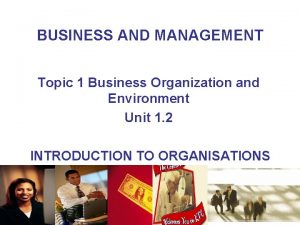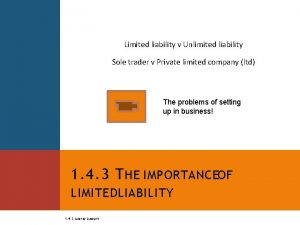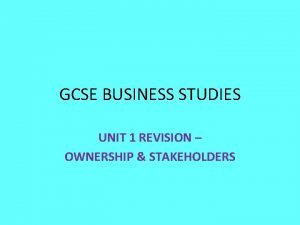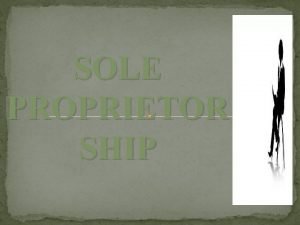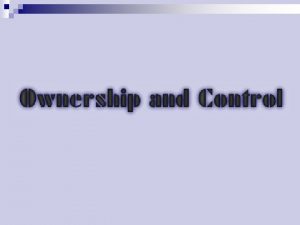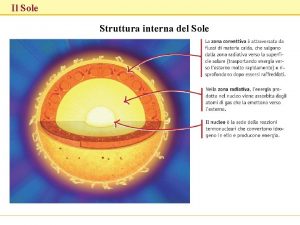Overview of Topics Ways to trade sole trader







- Slides: 7

Overview of Topics • Ways to trade – sole trader, company, partnership, LLP. . . • Tax driven indicators • Overview of sole trade • Overview of company • Allowable expenses – what to claim • Bookkeeping – the key considerations

Ways to Trade • Sole trader business – A relatively informal method of operating – Only filing requirement being the self assessment tax return • Limited company – – – Separate legal entity with own identity A more formal operating vehicle Profit extraction a key consideration Accounts to be prepared for Companies House Directors employed, shareholders own the company

Tax Driven Indicators • Does my private practice income take my total annual earnings above £ 150 k? Am I now paying 50% personal tax!? • Does my private practice income take my total annual earnings above £ 100 k? Have I lost my personal allowance? • Is my spouse a higher rate tax payer? If not, could they take dividends from my company effectively tax free?

Overview of Sole Trade • Requirement to prepare a summary of income and expense for each fiscal tax year. • Profits from the trade are subject to personal tax at potentially 50% if annual earnings exceed £ 150 k. • Personal tax is paid each January with an interim payment on account payable in July each year. • The profits are taxed in full on the person operating the trade. The profits can not be sheltered or divided between participants.

Overview of Limited Company • Requirement to file company accounts each year with Companies House. The accounts are available to the general public. • All company profits are subject to corporation tax at 20% or possibly 26% if profits exceed £ 300 k. • Corporation tax is payable once each year based on the taxable profit figure. • The profits must be extracted using a formal dividend which is itself taxable on the shareholder. • The company structure allows for profits to be sheltered from the highest rates of personal tax. • A low earning shareholder may take dividends tax free.

Allowable Expenses • Has the expense been incurred ‘wholly and exclusively’ for the purpose of the trade? • Motor expense is a contentious area, a mileage log is vitally important. • Common costs include : • • • Room rental Secretarial fees Medical assistant fees Computer costs Professional indemnity insurances

Bookkeeping – Key Considerations • Keep an accurate list of income accrued including date the work was done and date the cash was received. • Keep a record of the bad debts. • Sequentially number the sales invoices issued. • Make sure that income is banked and costs paid from the business bank account. • Keep copies of the purchase invoices to support your expense claims. • Remember to take a ‘snapshot photograph’ of your business at the business year end. What monies are receivable and payable at the year end date. • Keep it simple! Microsoft Excel is usually a safe bet.

